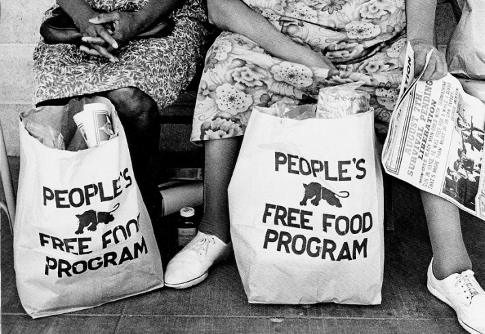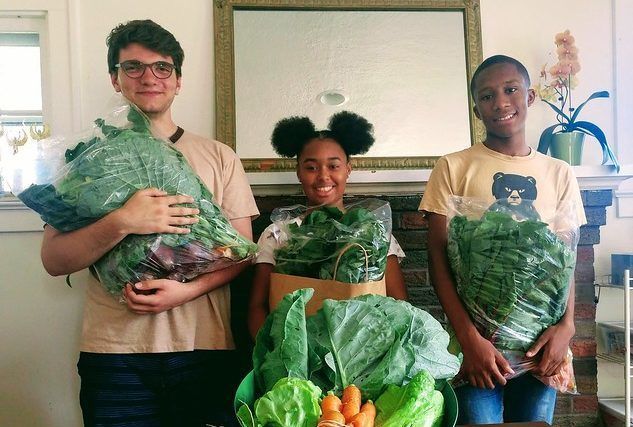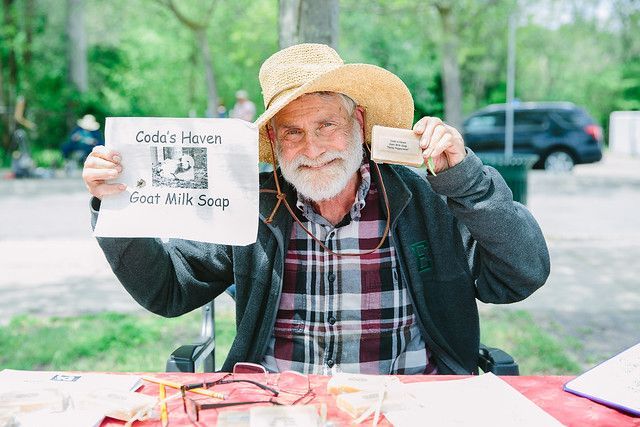Article
Growing Hope Awards Inaugural Sprout Grants to Empower Community Gardens in Ypsilanti
FOR IMMEDIATE RELEASE
Contact: Ayanfe Jamison
Garden Manager
ayanfe@growinghope.net
734-786-8401
Growing Hope Awards Inaugural Sprout Grants to Empower Community Gardens in Ypsilanti
Ypsilanti, MI, August 22, 2024–Growing Hope is proud to announce the recipients of its inaugural Sprout Grants, which aim to foster community self-reliance, self-determination, and food sovereignty through the support of local community gardens. These grants represent a crucial step toward building a resilient and sustainable food system in Ypsilanti by empowering residents to take control of their own food sources and strengthen their neighborhoods.
The 2024 Sprout Grant recipients include:
- Frog Island Community Garden: Installing a path to assist with ADA accessibility.
- Parkridge Community Garden: Purchasing a tiller to allow them to do their best work in the spaces they steward as they grow food for the community.
- M.E.S.S. House Community Garden: This funding will support the garden’s purchase of tools, construction of raised beds, and installation of fruit trees as it works to build a community farm.
- Chidester Place Community Garden: Will build fencing to keep out deer and other wildlife.
- Alley Garden: Repurposing recycling bins into raised garden beds along a path throughout Ypsi.
- Cross Street Village Gardeners: Starting a small herbal garden with a fence and tools.
- Normal Park Community Garden: Clean the grass and weeds out of the paths and put gravel or a thick bed of wood chips in the paths to keep the grass and weeds from the paths.
These community gardens have been selected for their commitment to nurturing local food production, enhancing access to fresh produce, and creating spaces where residents can connect, learn, and grow together. Each garden will receive financial support and resources tailored to its unique needs, allowing it to expand its impact and continue its vital work in fostering food security and community resilience.
“We are thrilled to support these gardens, each of which plays a critical role in advancing food sovereignty and empowering our community to become more self-reliant,” said Julius Buzzard, Executive Director. “These grants are not just about growing food; they’re about growing community, empowering individuals to shape their own food systems, and ensuring that everyone in Ypsilanti has the opportunity to thrive.”
The Sprout Grants are part of Growing Hope’s broader mission to promote community-driven solutions to food insecurity and support initiatives encouraging healthy, sustainable, and just food systems. By investing in these community gardens, Growing Hope is helping to build a future where every Ypsilanti resident has access to fresh, nutritious food and the knowledge to grow it themselves.
PHOTOS AVAILABLE UPON REQUEST
Growing Hope is a 501(c)3 nonprofit organization focused on strengthening and supporting the local food system throughout the community and beyond. We own and operate a demonstration urban farm, fund, and staff the Ypsilanti Farmers Markets, and facilitate home and community gardening programming, preparing fresh, affordable local produce and food entrepreneurship for youth and adults.
share this
Related Articles
Related Articles



STAY UP TO DATE
GET PATH'S LATEST
Receive bi-weekly updates from the church, and get a heads up on upcoming events.
Contact Us









